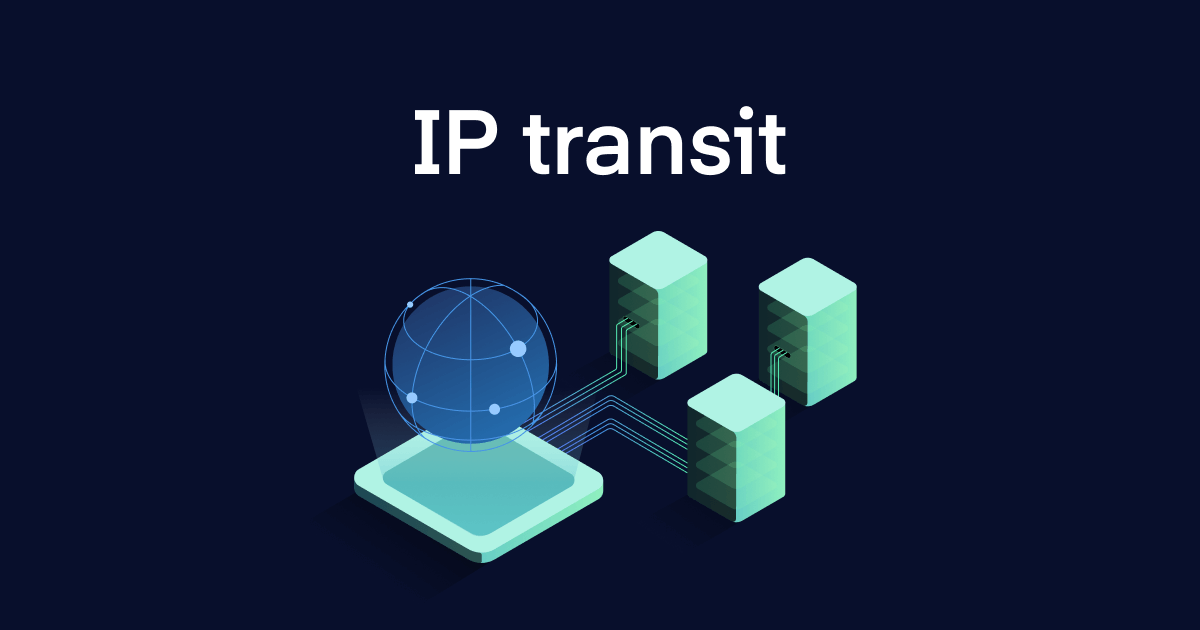IP transit is crucial for companies of all sizes within the ever-changing landscape of connectivity to the internet. It lets them gain seamless access to the world wide web. IP Transit forms the backbone for modern communication networks. It powers everything from cloud services to online shopping platforms. In this article, we’ll discuss the fundamentals of IP transit, the role of IP transit providers, the range of services they provide, and how businesses can take advantage of IP transit prices and costs.
IP transit, often referred to as internet transit, is the service of allowing network traffic to cross or “transit” a network, enabling users to connect to the wider internet. This connection is made possible by IP transit providers, which are companies that manage the infrastructure necessary to transmit data packets between networks. These companies are vital in ensuring that internet connectivity remains effective and reliable for users and businesses.

There are numerous IP transit options for businesses. Certain providers offer basic service for accessing the internet, without any customizations or other features. Other providers provide advanced services such as managed IP Transit, which comes with monitoring, support for additional devices and security features. The option you choose is based on your business’s specific requirements and needs.
One of the main aspects to be considered by businesses when choosing the right IP transit provider is their pricing. Prices for IP transit can be influenced by factors such as bandwidth requirements, geographic location and service-level contracts. Understanding the various pricing methods and cost structures provided by various providers is crucial for businesses to make informed decisions and be sure that they’re getting the best return on their investment.
Companies should take into consideration not just the cost, but the reliability and performance offered by the IP transit service provider. Carrier grade networks with backbone connectivity that is 100G or 400G are able to provide the reliability as well as the scalability, reliability and scalability required for mission-critical services and applications. End-to-end automation further enhances effectiveness and guarantees a seamless user experience.
For companies looking to simplify the network connections, IP-Access is a completely customizable and flexible solution. This option of connectivity is perfect for businesses that have older installations or specialized needs. With features like IPv4/31 transfer networks and IPv6/127 by default, businesses can modify their connectivity to meet their requirements without the complexities of BGP sessions.
IP-Access provides basic DDoS protection for large-scale attacks in conjunction with its Internet access. This adds an extra layer of security and protection to corporate networks. This protects against cyber threats that could cause downtime or loss of revenue.
Inter.link Portal provides a convenient cost-effective and efficient method to gain access to IP services to all companies. Businesses can implement IP Transit in a matter of minutes using a few clicks. The user can choose their preferred locations, bandwidth requirements along with port speed and contract duration. This simplified process allows businesses to focus their resources and time on their core business.
IP transit is an essential component of modern-day internet, enabling businesses to communicate and interact with people across the globe. If you know the basics of IP transit, the role of IP transit providers, the range of services they provide and how to negotiate the costs and pricing, businesses can make informed choices and ensure they have the connections they need to thrive in today’s digital world. IP transit is essential for modern communication networks. It’s used to access cloud services, power e-commerce platforms or connect remote offices.